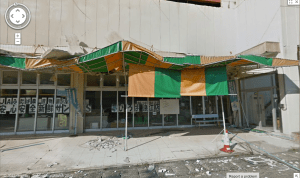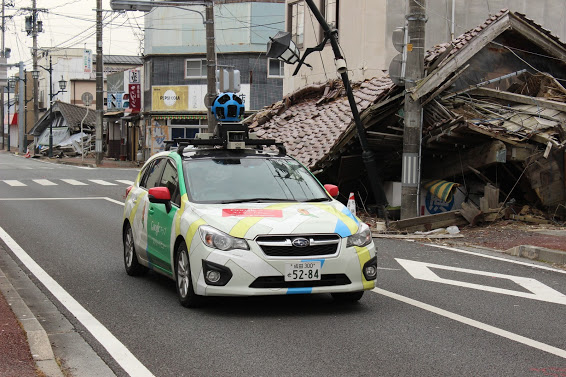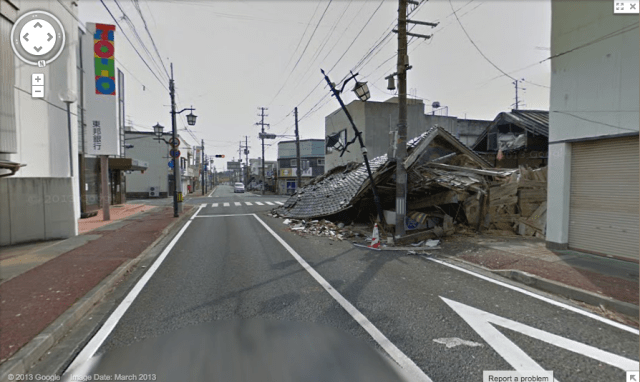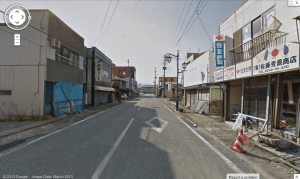Two years after the devastating Tōhoku earthquake and tsunami, Google has made available Street View images of Namie-machi in the Fukushima exclusion zone. The area encompasses Fukushima Daichi Nuclear Plant, which after the disaster was the scene of the largest nuclear disaster since Chernobyl. The 360-degree panoramic imagery, showing ruined buildings on empty streets, is both eerie and heartbreaking.
Namie-machi has been empty since its 21,000 residents were evacuated on March 11, 2011, the day of the earthquake. Google began photographing the area earlier this month after an invitation from Namie-machi’s mayor Tamotsu Baba. The imagery is part of Google’s digital archive project Memories for the Future.
 “Many of the displaced townspeople have asked to see the current state of their city, and there are surely many people around the world who want a better sense of how the nuclear incident affected surrounding communities, said Mayor Baba in an entry on Google Japan’s blog.
“Many of the displaced townspeople have asked to see the current state of their city, and there are surely many people around the world who want a better sense of how the nuclear incident affected surrounding communities, said Mayor Baba in an entry on Google Japan’s blog.
“Ever since the March disaster, the rest of the world has been moving forward, and many places in Japan have started recovering. But in Namie-machi time stands still,” he added. “With the lingering nuclear hazard, we have only been able to do cursory work for two whole years. We would greatly appreciate it if you viewed this Street View imagery to understand the current state of Namie-machi and the tremendous gravity of the situation.”
Other areas impacted by the tsunami that have been photographed as part of the initiative include Rikuzentakata in northeastern Japan. Google started capturing images of tsunami and earthquake damage a few months after the disaster. The project seeks to be a testament to the scale of the tsunami as different areas are gradually rehabiliated. In addition, Google’s post-earthquake intitiatives in Japan, where Yahoo! Japan is still the top search engine, have the company gain a more positive profile after several cultural missteps, including earlier negative public reaction to Street View in the privacy-conscious country.
Earlier this month, Google also launched Public Alerts in Japan, after the emergency response platform first made its debut in the U.S. Earthquake and tsunami warnings for Japan appear on Google Search, Google Maps, and Google Now when users search for information during a crisis.


